ZKsync is a Layer 2 solution for the Ethereum blockchain that utilizes zk-Rollups technology to increase scalability and reduce transaction fees. ZKsync enables fast and low-cost transactions while maintaining the security provided by the underlying Ethereum blockchain.
Post-airdrop problem
After airdrop ZKsync lost a lot of active users. If we look at the DAU chart, we can see that the peak DAU (without airdrop) was 567k active users. Already during the airdrop, this number increased to 741k, which was the best in 2024. Immediately after the airdrop, the trend went down and in August we saw the number of active users below 100k.
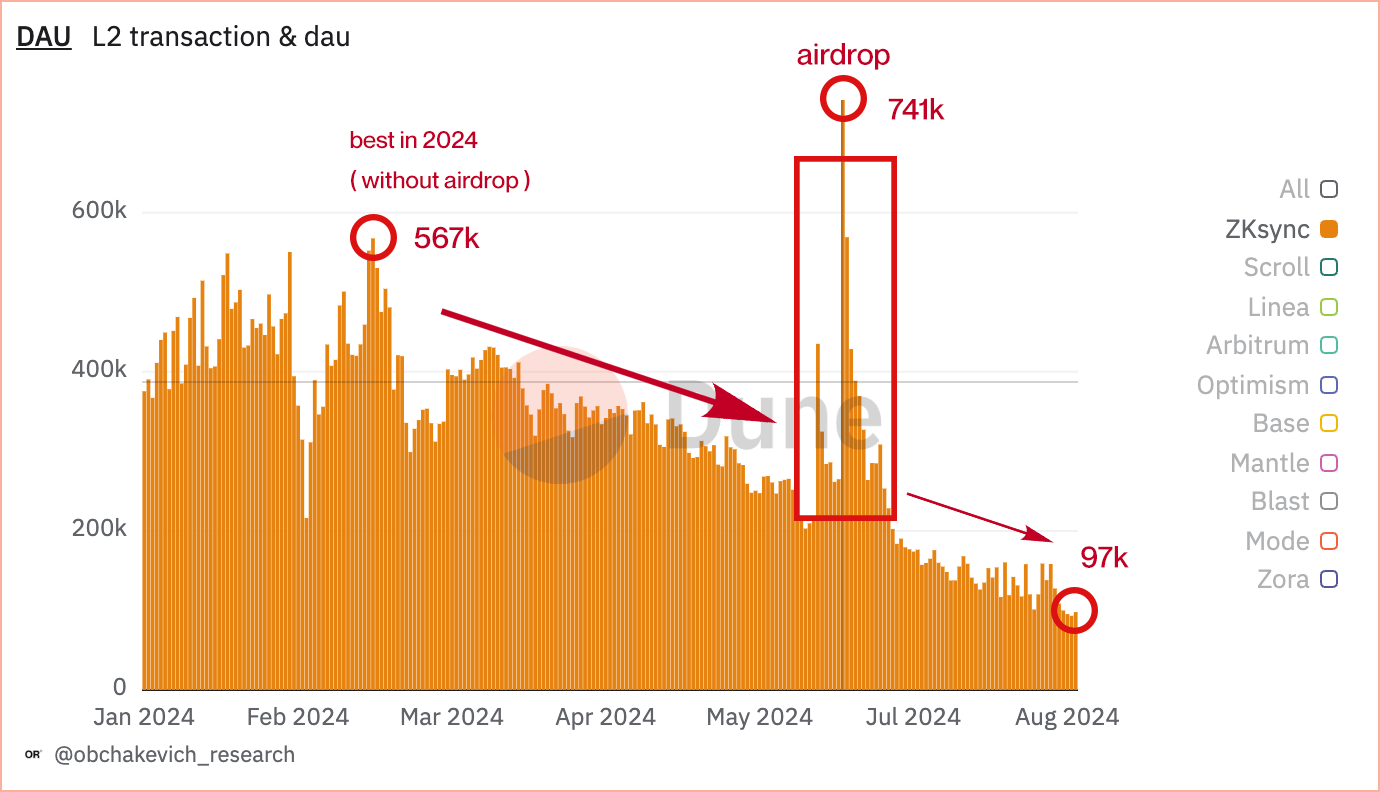
This severe decline may indicate that many users were using the platform only for the benefits, rather than for the technology or low commissions.
Let's also look at ZKsync compared to other L2 projects, how much ZKsync's dominance decreased in 2024. The chart gives us a clear picture, where we can see that ZKsync in January 2024 had a dominance of 47% among other L2 projects. Already during the airdrop, this figure decreased to 27%, and on August 14 it showed about 5% among L2 projects.
This is also connected with the strengthening of positions of such projects as Arbitrum and Base, which show stable growth. It should also be noted that Base is likely to suffer the same fate as ZKsync, but this will be discussed in the next research.
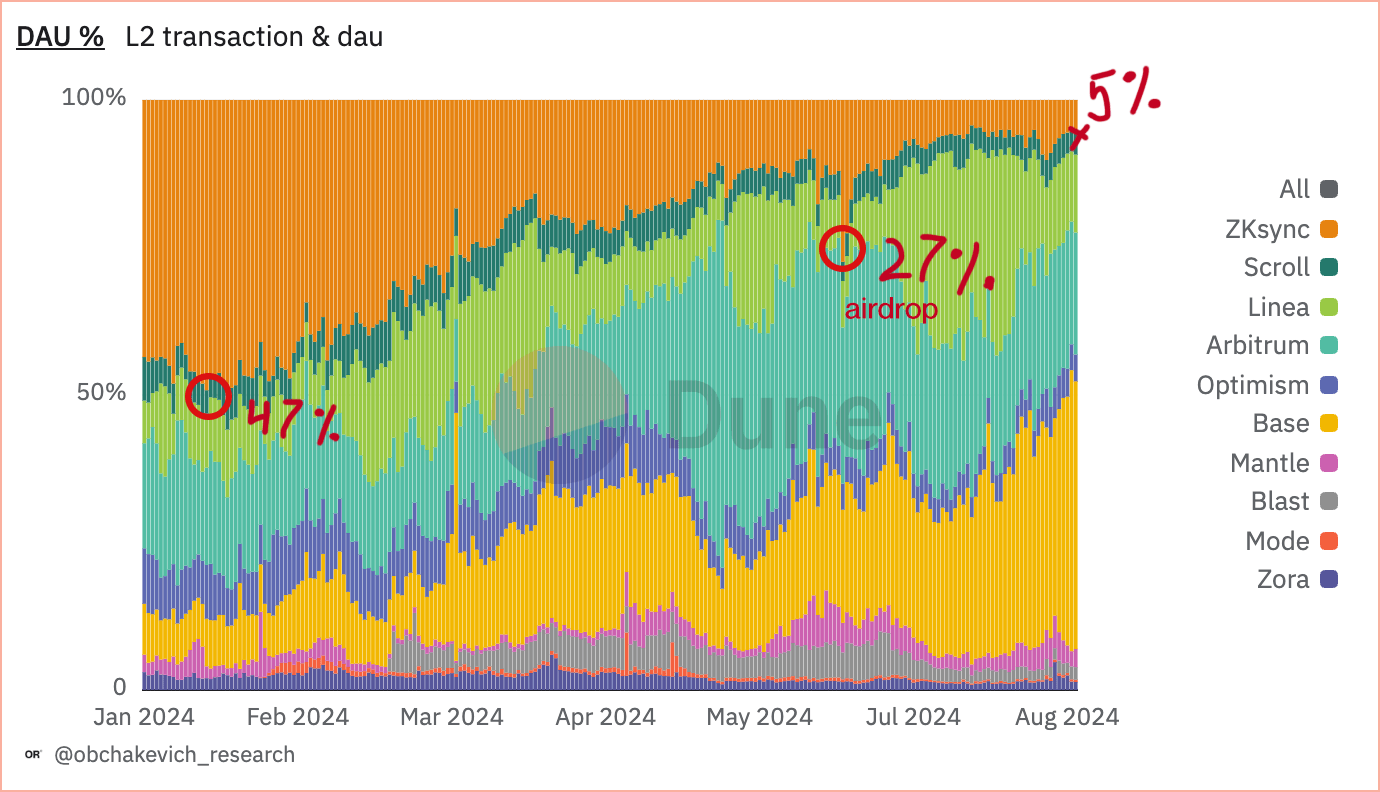
Moving users from ZKsync to other L2s
The decrease in user activity after airdrop is a very predictable action. The large outflow of users from ZKsync to other L2s means that the project has gotten rid of drophunters and people not interested in the product.
Let's take a look at the analytics on the number of transactions on multichain accounts that are active on both ZKsync and Base:
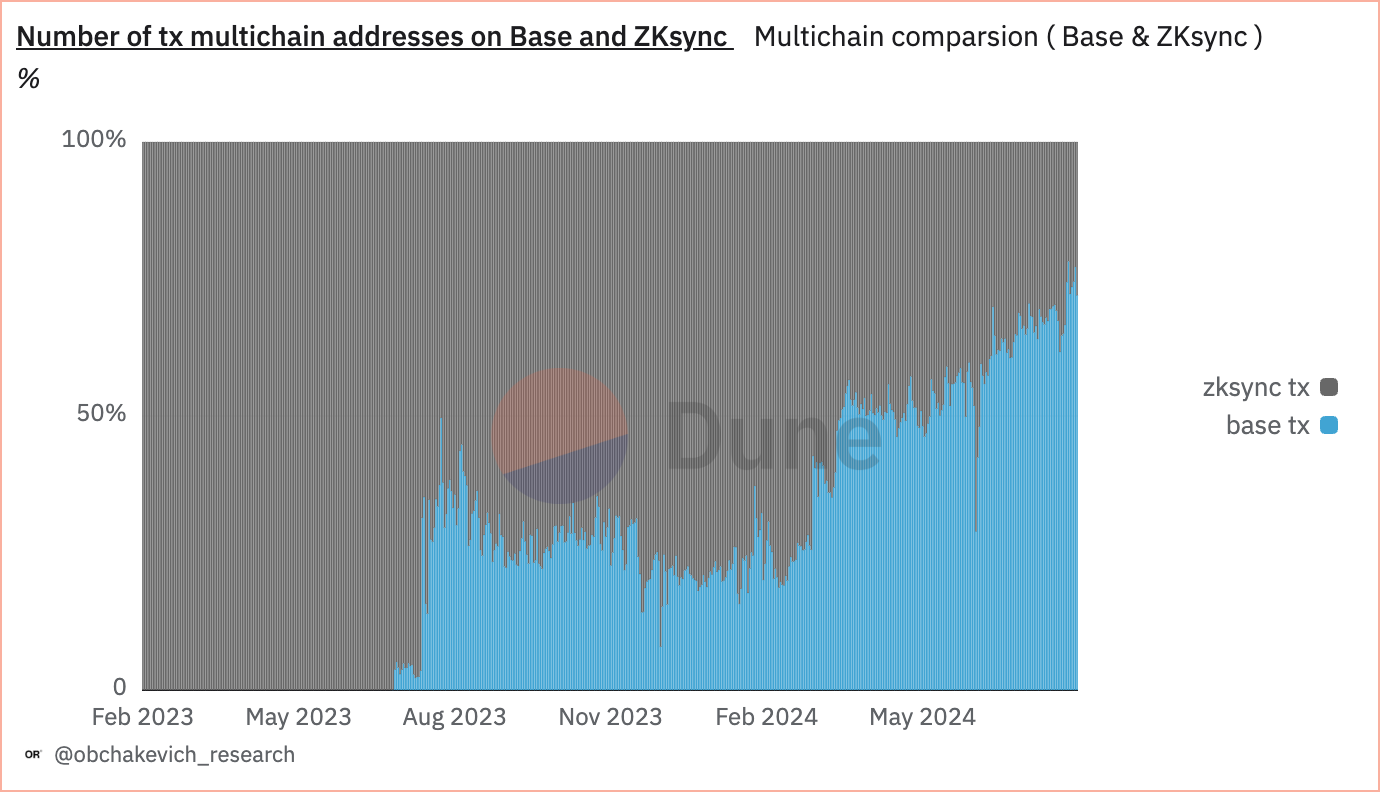
During the airdrop, ZKsync's multichain account activity increased to 71% dominance (compared to Base transactions), while Base account activity accounted for only 29% of multichain account transactions. Immediately after airdrop, ZKsync's dominance began to gradually decline and fell below 30%.
That is, those accounts that were actively using ZKsync started using it less frequently, switching to other L2s such as Base.
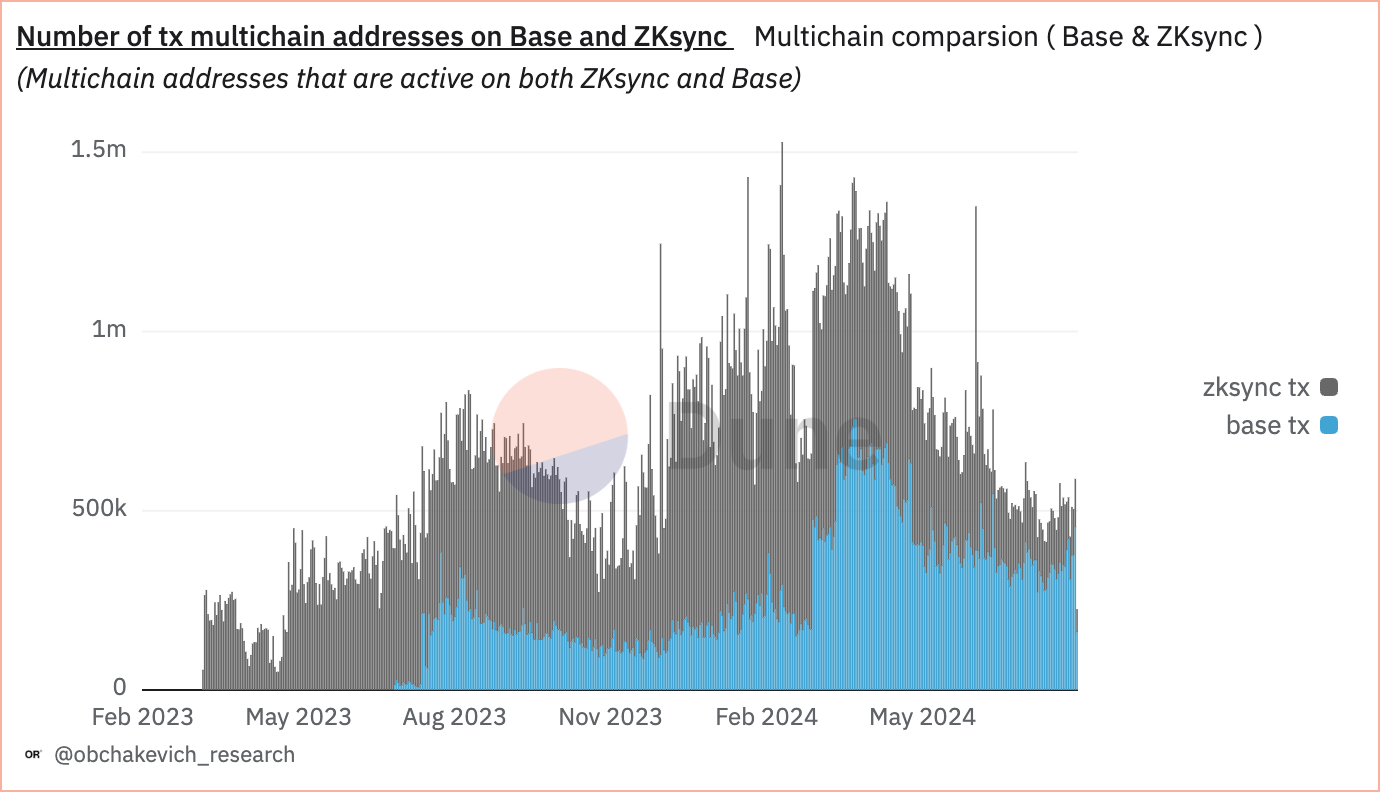
The analysis focuses on overlapping users (multichain addresses) to identify their activity by day on both networks (ZKsync and Base ) and determine where and when activity was highest.
Strong users base
The vast majority of users are returning users, indicating a stable and loyal user base. New users make up an insignificant proportion. However, starting in June 2024 (the airdrop period), we can see a significant increase in the proportion of new users, who make up the majority of activity.
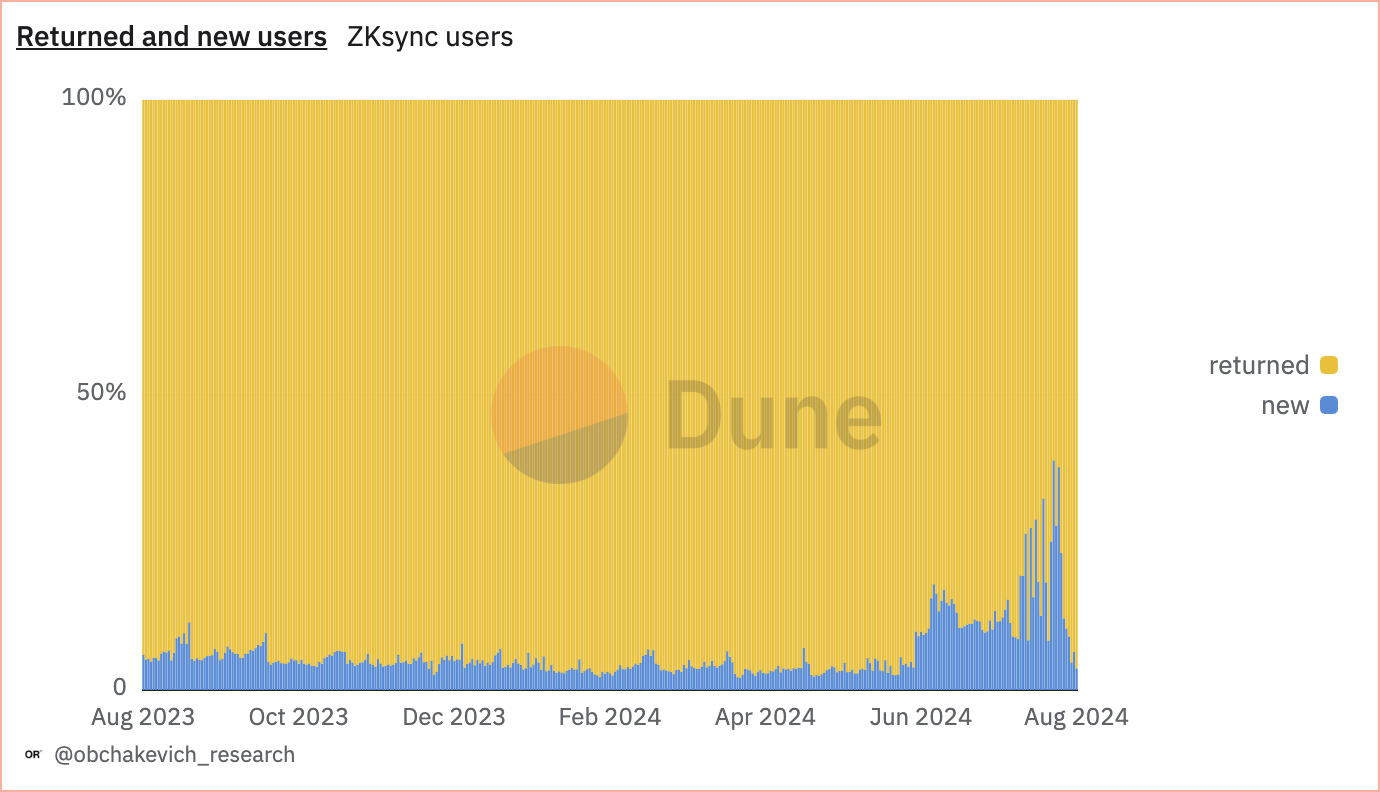
Conclusion
Despite losing a lot of users, ZKsync remains a good project with a decent product. In time, the number of new users will increase, as the team is already making the right decisions to attract new users and gradually improving their product.